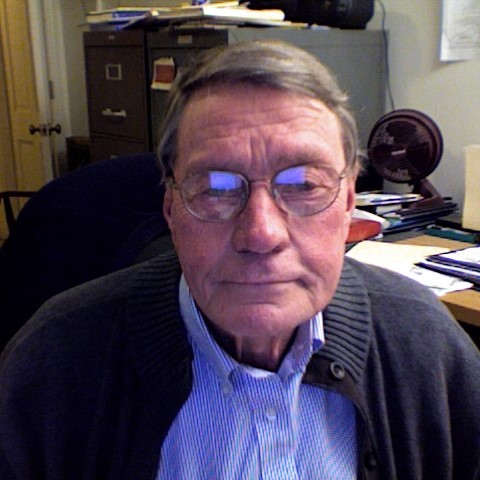The Parish Pastor as Chaplain
 There may be some who think that Church life, centered around the Parish, as we presently know, it will become obsolete. I suppose that is a possibility, but probably not any time soon.
There may be some who think that Church life, centered around the Parish, as we presently know, it will become obsolete. I suppose that is a possibility, but probably not any time soon.
There was a time when I thought it was somehow a denigration of the parish pastor’s role to designate her as ‘merely’ a chaplain to the congregation.
CPE has helped me to a different perspective.
Now my view is that the shape of the pastor’s work will be formed in large part by the institution in which he works. But, whatever the setting, the perspective of pastor as chaplain might be understood as the best basic defining perspective—chaplain as the one whose focus is on the Spirit both in the individual and in the community.
And we in ACPE have been about the task for well over half a century of enhancing the pastoral skills, practices and attitudes of ordained (and now, some not ordained, yet otherwise authorized) practitioners of the pastoral care arts—the Chaplain.
It seems to me that there is a long-term drift within ACPE toward a more limited view of Chaplaincy—limited to health care institutions, or more broadly, to other agencies (e.g., prisons, homeless shelters) which are non-Parish church centered. Our literature stresses training for those who will be employed by and serving in such institutions and agencies; it does not, generally, as far as I can tell, stress the importance of providing the same level of training for those who are likely to spend their entire professional lives in service to Parish Churches.
There was an Episcopal Priest named Loren Mead (1930-2018); he became the founding Director of the Alban Institute, an organization whose work was to research parish church life with a view toward making it the life-giving place it could be. Here is a brief excerpt from an interview he gave two years before he died:
The thing that changed my life in seminary [in the early 1950’s] was clinical training.[i]
I knew Loren slightly and admired his work greatly. His The Once and Future Church[ii] gives a flavor of his perspective on the possibilities for health-giving life in the life of Parish Churches. I contacted him sometime in 2010 to ask why CPE was no longer included in his work. His reply was something to the effect that CPE seemed to him to have left the Parish and to be focusing on institutional Chaplaincy.
I agreed with him then and do now.
It is, I believe, mostly by historical accident and financial necessity that we have located almost all our CPE Centers in Hospitals—a happy accident, to the benefit of us both.
Later in that interview, he said this, describing his early work as a Parish Priest in Chapel Hill, North Carolina; he said he had developed skills as a pretty good counselor, one-to-one:
And all of a sudden, I realized Chapel Hill had more good people, counselors, psychiatrists, psychologists, social workers, all kind of people, who really knew how to help people solve their problems. And this town was turning out sick folks faster than we were getting them well. [Laughs] I said, “Oops, that individual therapy model isn’t adequate.” And that’s when I made the flip in my mind that what we need a congregation to be is a center of health, spiritual health, all kind of health…And to try to infect the community with health, because the things that were going on the community were basically communicating illness and trouble, but we needed to form a community that was a healing community…
Bingo! There’s our entrée to hospitals and the insurance carriers who pay them. We are in the health business, too. Why are we not marketing ourselves from that perspective to those entities? Our small group work—our attention to systems—means that we practice being a healing community; and that we know the crucial importance of healthy community. We know that physical and spiritual health cannot be separated.
There’s a very large ‘market’ of potential students out there who could greatly profit from what ACPE offers so well, and we are ignoring those aspirants for Parish Ministry.
We are educators; we need to reestablish contact with our colleagues in the seminaries; we are Clergy, we need to reestablish contact with our judicatory colleagues; we are experts in the all-important spiritual component of health care; we need to educate our institutions about our expertise. Community means, among other things, mutual support: we need the hospital—it is a marvelous training site; the hospital needs us—we practice the central importance of spirituality to health—the health of individuals and the health of communities.
Peter Keese is an ACPE Certified Educator at Vanderbilt University Medical Center. He can be reached at peterkeese1@gmail.com
